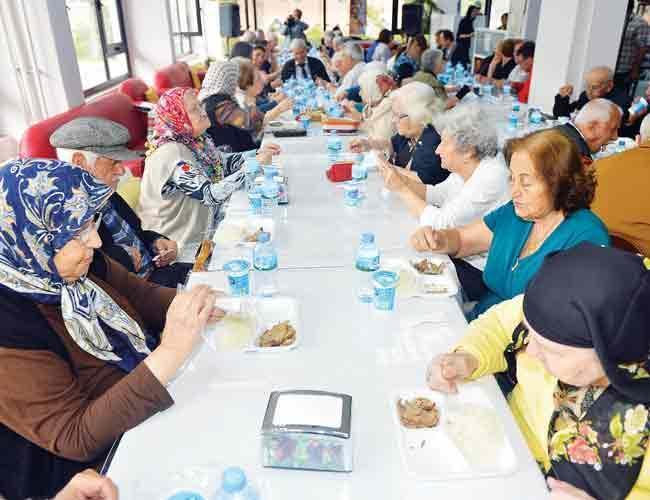
Turkey’s elderly population grew by 16 percent over the past five years, according to statistics released by the Turkish Statistical Institute (TÜİK) on March 18.
TÜİK stated that the population of people over 65 years of age in Turkey rose to 7,186,204 in 2018, up from 6,192,662 in 2014.
The proportion of the elderly population in terms of the total population was 8.8 percent in 2018, up from 8 percent in 2014. Some 44.1 percent of the elderly population was made up of men and 55.9 percent was made up of women in 2018.
According to the population projections, the proportion of elderly population was expected to be 10.2 percent in 2023, 12.9 percent in 2030, 16.3 percent in 2040, 22.6 percent in 2060 and 25.6 percent in 2080.
“In 2018, 9.1 percent of the world population was elderly population. The three countries that had the highest proportion of elderly population were Monaco with 33.2 percent, Japan with 28.4 percent and Germany with 22.4 percent, respectively. Turkey was in the 66th rank among 167 countries,” the report said.
The median age, one of the indicators of aging population, was 30.7 in 2014 and 32 in 2018. The median age was 31.4 for males and 32.7 for females in 2018.
According to the population projections, the median age was expected to be 33.5 in 2023, 35.6 in 2030, 38.5 in 2040, 42.3 in 2060 and 45 in 2080.
According to the results of Life Tables, 2015-2017, life expectancy at birth was 78 years in total, 75.3 years for men and 80.8 years for women in Turkey. In general, women live longer than men and the difference in life expectancy at birth was 5.5 years.
The elderly dependency ratio, made up of the number of elderly people per hundred people of working age, was 12.9 percent in 2018, up from 11.8 percent in 2014.
According to the population projections, elderly dependency ratio was expected to be 15.2 percent in 2023, 19.6 percent in 2030, 25.3 percent in 2040, 37.5 percent in 2060 and 43.6 percent in 2080.
The province that had the highest proportion of elderly population was the Black Sea province Sinop with 18.3 percent in 2018. This province was followed by other Black Sea provinces of Kastamonu (17.1 percent) and Artvin (15.7 percent). The provinces that had the lowest proportion of elderly population were the southeastern province of Şırnak and Hakkari with 3.2 percent.
Number of centenarians 5,202
Meanwhile, there were 5,202 centenarians in 2018. While the first three provinces that had the highest centenarians were Istanbul with 701 persons, the Black Sea province of Giresun with 272 persons and Ankara with 263 persons, the first three provinces that had the lowest centenarians were the northeastern provinces of Ardahan and Bayburt with four persons, the northern province of Bartın with six persons and northwestern province of Edirne with seven persons.
Labor force participation rate 12.2 percent for elderly
According to the results of household labor force survey, while the labor force participation rate for the 15-64 age group was 52.8 percent, this rate was 12.2 percent for the elderly population in 2017. While this rate was 20.6 percent for elderly male population, it was 5.6 percent for elderly female population. The unemployment rate of elderly population was 2.2 percent.
According to the causes of death statistics, 45.1 percent of elderly people lost their lives from diseases of the circulatory system in 2017. This was followed by neoplasm diseases with 16.2 percent and respiratory system diseases with 14.2 percent.
Meanwhile, the proportion of elderly people who died from Alzheimer’s disease has increased over the 2013-2017 period. While the number of elderly people who died from Alzheimer’s was 8,797 in 2013, it increased to 13,601 in 2017. While the proportion of elderly people who died from Alzheimer’s disease was 3.6 percent in 2013, this proportion increased to 4.6 percent in 2017.
According to the results of life satisfaction survey, while the proportion of elderly people who declared themselves happy was 66.1 percent in 2017, this proportion decreased to 61.2 percent in 2018.
The most important source of happiness for elderly people was their families with 71 percent in 2018. The second source of happiness for elderly people was their children with 14.4 percent.